Exclusive-Chinese EV maker BYD to build Vietnam component plant - sources
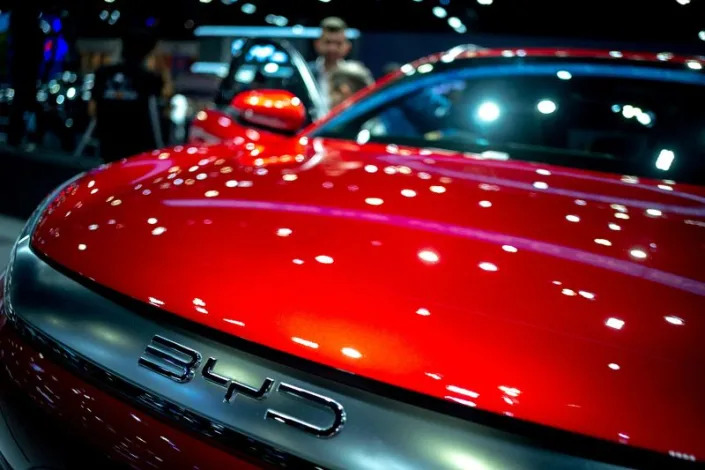

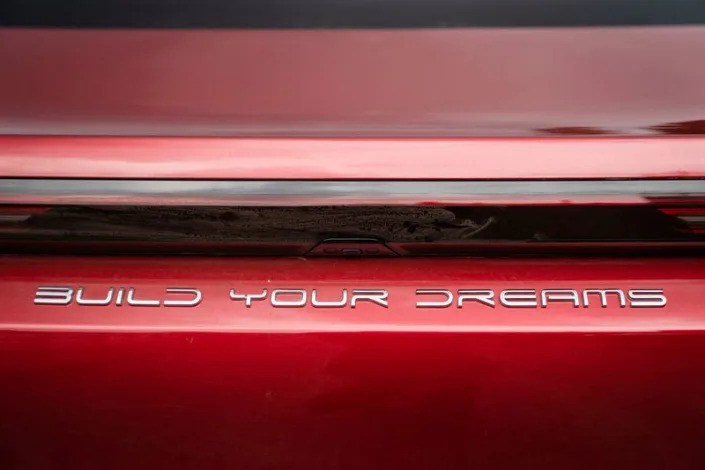
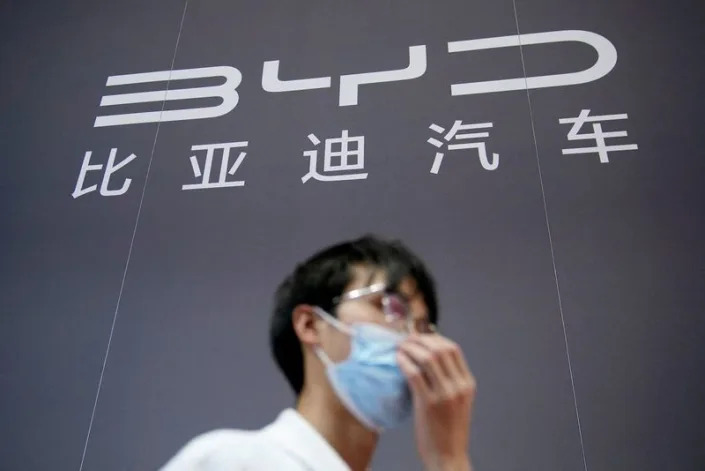
BYD sign at Auto Shanghai show
Thu, January 12, 2023
By Phuong Nguyen and Francesco Guarascio
HANOI (Reuters) - Chinese electric vehicle (EV) maker BYD Auto Co plans to build a plant in Vietnam to produce car parts, three people with knowledge of the plan told Reuters, in a move that would reduce the company's reliance on China and deepen its supply chain in Southeast Asia as part of a global expansion.
The investment in northern Vietnam would exceed $250 million, one of the people said, expanding parent BYD Co's presence in Vietnam, where its electronic unit produces solar panels.
The move underscores a wider trend by manufacturers to reduce their exposure to China amid trade tensions with the United States and production disruptions caused by Beijing's previous COVID-19 lockdowns.
BYD declined to comment.
The Xian-based carmaker, which outsold rival Tesla Inc in EVs by more than two to one in China last year, has been expanding elsewhere in Asia, including Singapore and Japan, and Europe.
Backed by Warren Buffett's Berkshire Hathaway, BYD makes both plug-in hybrids and pure electric vehicles. Like Tesla, BYD controls much of its supply chain, including battery production, a strategy that sets it apart from established automakers.
The company announced in September it would build an EV assembly plant in Thailand with annual capacity of 150,000 cars from 2024.
By investing in Vietnam, BYD is looking to add capacity, control costs and diversify production from its operations in China, where demand has been strong.
Talks are underway to select a site for the Vietnam plant, said the sources, who declined to be named because the discussions are confidential. One said construction was planned to start by mid-year.
DOUBLING FOOTPRINT
It was not immediately clear what components BYD would build in Vietnam and whether it would include batteries or battery packs.
BYD's planned investment and a $400 million project by digital display maker BOE reported by Reuters this week would equal more than a quarter of the $2.5 billion Chinese companies invested in Vietnam all of last year.
U.S. corporations such as Apple Inc and their suppliers, such as Taiwan's Foxconn and China's Luxshare, have also been seeking alternative production hubs, with neighbouring Vietnam one of the main options.
BYD is looking to lease 80 hectares (200 acres) of industrial land, more than doubling its footprint in Vietnam, where its electronic unit rents 60 hectares, a second source said.
The Vietnam plant will export components to the assembly plant to be built in Thailand, one source said.
The operation in Vietnam could also serve the local market, mostly through maintenance services and spare parts for BYD vehicles imported from China, one source said.
That would pose a direct challenge to VinFast, a Vietnamese EV maker that began selling cars in 2019 and plans to expand in the United States and Europe.
In December the U.S. Commerce Department found that units of BYD and other Chinese companies were circumventing decade-old U.S. tariffs on Chinese solar cells and panels.
If finalised in May, that finding would mean those companies would be subject to duties on products made in Vietnam and some other Southeast Asian countries.
(Reporting by Phuong Nguyen and Francesco Guarascio in Hanoi; Additional reporting by Zoey Zhang; Editing by William Mallard)
China's BYD to launch luxury electric sedan in India this year
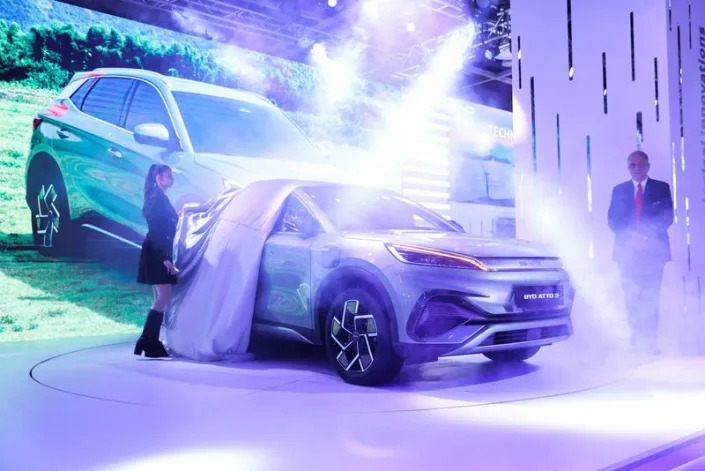
Auto Expo 2023 in Greater Noida
Wed, January 11, 2023
By Praveen Paramasivam and Aditi Shah
GREATER NOIDA, India (Reuters) - BYD will launch its third passenger electric vehicle in India by the fourth quarter of this year, the Warren Buffett-backed Chinese electric carmaker said during an auto show on the outskirts of New Delhi on Wednesday. The all-wheel drive luxury sedan, BYD Seal, will have a range of 700 kilometres. The company also plans to double its dealer network in the country in 2023, it added.
BYD launched its first passenger car in India in October, an electric sport-utility vehicle (SUV), with a plan to corner 40% of the country's electric car market by 2030. The carmaker plans to sell 15,000 units of the Atto 3 e-SUV this year in India, where it has already invested over $200 million, and will set up local manufacturing in due course.
BYD's push comes as the Indian government continues to maintain tight scrutiny over investments from China and has sought to limit investments from Beijing after a 2020 clash between soldiers from the two countries on their disputed Himalayan border.
Electrification is gathering momentum in India, where domestic companies like Tata Motors, India's top-selling EV maker, and Mahindra & Mahindra are lining up affordable EV models while global players like BYD and Kia Motor are bringing in premium cars.
India is set to become the world's third-largest market for passenger and other light vehicles, displacing Japan, according to a forecast by S&P Global Mobility.
(Reporting by Praveen Paramasivam; Writing by Chris Thomas;Editing by Elaine Hardcastle)

Auto Expo 2023 in Greater Noida
Wed, January 11, 2023
By Praveen Paramasivam and Aditi Shah
GREATER NOIDA, India (Reuters) - BYD will launch its third passenger electric vehicle in India by the fourth quarter of this year, the Warren Buffett-backed Chinese electric carmaker said during an auto show on the outskirts of New Delhi on Wednesday. The all-wheel drive luxury sedan, BYD Seal, will have a range of 700 kilometres. The company also plans to double its dealer network in the country in 2023, it added.
BYD launched its first passenger car in India in October, an electric sport-utility vehicle (SUV), with a plan to corner 40% of the country's electric car market by 2030. The carmaker plans to sell 15,000 units of the Atto 3 e-SUV this year in India, where it has already invested over $200 million, and will set up local manufacturing in due course.
BYD's push comes as the Indian government continues to maintain tight scrutiny over investments from China and has sought to limit investments from Beijing after a 2020 clash between soldiers from the two countries on their disputed Himalayan border.
Electrification is gathering momentum in India, where domestic companies like Tata Motors, India's top-selling EV maker, and Mahindra & Mahindra are lining up affordable EV models while global players like BYD and Kia Motor are bringing in premium cars.
India is set to become the world's third-largest market for passenger and other light vehicles, displacing Japan, according to a forecast by S&P Global Mobility.
(Reporting by Praveen Paramasivam; Writing by Chris Thomas;Editing by Elaine Hardcastle)
Tata Motors looks to expand electric car portfolio, add pricier models
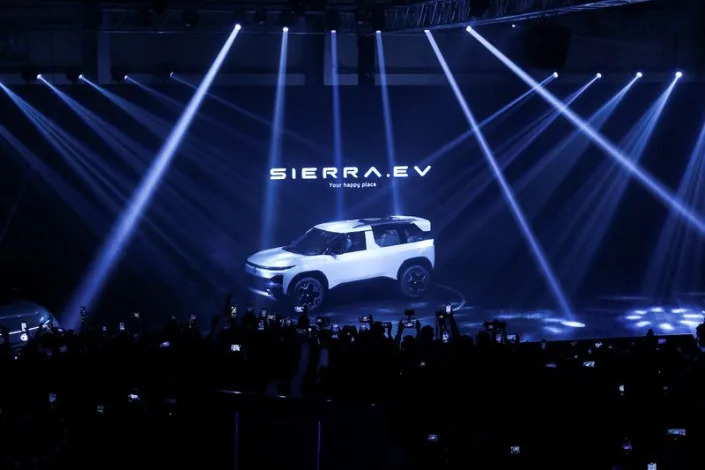
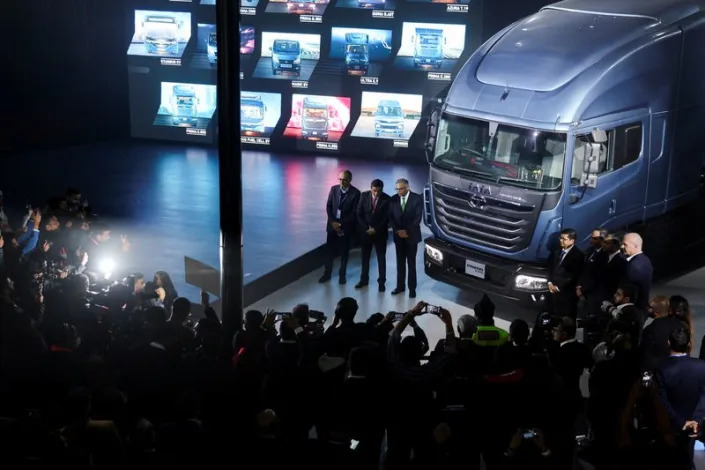
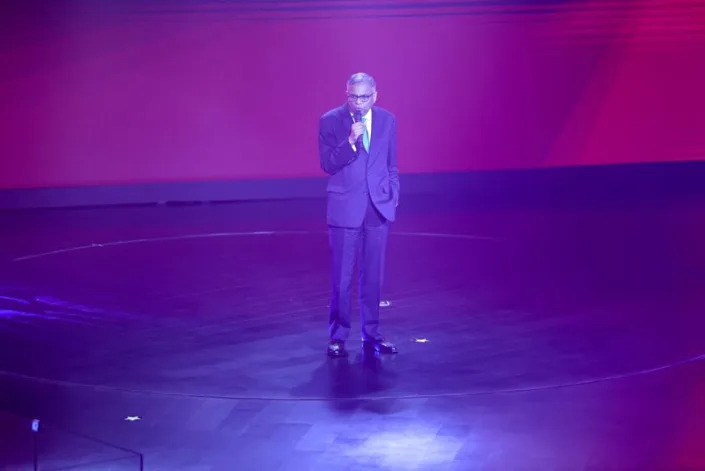
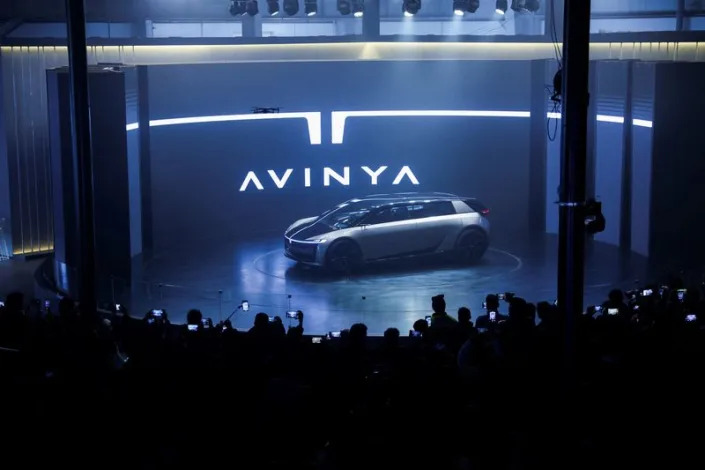
Auto Expo 2023 in Greater Noida
Wed, January 11, 2023
By Aditi Shah and Praveen Paramasivam
GREATER NOIDA, India (Reuters) - Tata Motors plans to expand its electric car portfolio with new models and higher price points, its managing director said on Wednesday, as it looks to cement its lead as the top selling electric vehicle (EV) company in India.
The carmaker will also offer a choice of ranges for its EVs so it can address the needs of multiple buyers, including shorter ranges for city use, Shailesh Chandra, managing director of Tata Motors Passenger Vehicles and its EV subsidiary told Reuters on the sidelines of India's Auto Expo car show.
"Customer needs are getting very individualistic. Going ahead we will maintain our growth momentum and work towards further strengthening our portfolio," said Chandra.
The company showcased 12 cars, including five electric models, and 14 trucks, including ones powered by hydrogen fuel cells, as it looks to deepen its clean vehicle push.
The cars included electric versions of its popular Harrier and Sierra SUVs as well as a concept car based on its new electric vehicle platform which is expected to be launched in late 2025, Chandra said.
With sales of 50,000 electric cars, Tata dominates India's EV market, helped by government subsidies and high import tariffs, and has outlined plans to launch 10 electric models by March 2026.
India's car market is tiny compared to its population, with electric models making up just 1% of total car sales of about 3 million a year, but the government wants to grow this to 30% by 2030.
"The transition to electric mobility in India will happen much faster than we are imagining. We are confident that we chose the right strategy," N Chandrasekaran, Tata Motors' chairman, said during the event.
Tata Motors' pole position has also come from working with other Tata group companies like Tata AutoComp which supplies EV parts like batteries and motors, and Tata Power which is setting up charging stations in cities and along highways.
The carmaker is looking at opportunities to produce and source more parts like battery cells and motors locally and is also studying potential export markets for its electric cars, Chandra said.
Tata, India's third-largest carmaker, in 2021 raised $1 billion from TPG for its EV unit at a $9 billion valuation. Chandra said it currently has sufficient funds to meet its expansion needs.
(Reporting by Aditi Shah; Editing by Kirsten Donovan)




Auto Expo 2023 in Greater Noida
Wed, January 11, 2023
By Aditi Shah and Praveen Paramasivam
GREATER NOIDA, India (Reuters) - Tata Motors plans to expand its electric car portfolio with new models and higher price points, its managing director said on Wednesday, as it looks to cement its lead as the top selling electric vehicle (EV) company in India.
The carmaker will also offer a choice of ranges for its EVs so it can address the needs of multiple buyers, including shorter ranges for city use, Shailesh Chandra, managing director of Tata Motors Passenger Vehicles and its EV subsidiary told Reuters on the sidelines of India's Auto Expo car show.
"Customer needs are getting very individualistic. Going ahead we will maintain our growth momentum and work towards further strengthening our portfolio," said Chandra.
The company showcased 12 cars, including five electric models, and 14 trucks, including ones powered by hydrogen fuel cells, as it looks to deepen its clean vehicle push.
The cars included electric versions of its popular Harrier and Sierra SUVs as well as a concept car based on its new electric vehicle platform which is expected to be launched in late 2025, Chandra said.
With sales of 50,000 electric cars, Tata dominates India's EV market, helped by government subsidies and high import tariffs, and has outlined plans to launch 10 electric models by March 2026.
India's car market is tiny compared to its population, with electric models making up just 1% of total car sales of about 3 million a year, but the government wants to grow this to 30% by 2030.
"The transition to electric mobility in India will happen much faster than we are imagining. We are confident that we chose the right strategy," N Chandrasekaran, Tata Motors' chairman, said during the event.
Tata Motors' pole position has also come from working with other Tata group companies like Tata AutoComp which supplies EV parts like batteries and motors, and Tata Power which is setting up charging stations in cities and along highways.
The carmaker is looking at opportunities to produce and source more parts like battery cells and motors locally and is also studying potential export markets for its electric cars, Chandra said.
Tata, India's third-largest carmaker, in 2021 raised $1 billion from TPG for its EV unit at a $9 billion valuation. Chandra said it currently has sufficient funds to meet its expansion needs.
(Reporting by Aditi Shah; Editing by Kirsten Donovan)
No comments:
Post a Comment